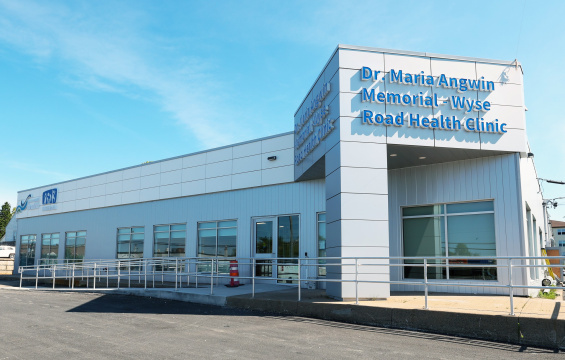In a significant boost to healthcare accessibility in Dartmouth, the new Wyse Road Health Clinic officially opened its doors yesterday, marking a pivotal moment for community-based care in Nova Scotia’s Halifax Regional Municipality. The state-of-the-art facility, strategically located in north Dartmouth, aims to address growing healthcare demands in an area that has historically faced service gaps.
“This clinic represents our commitment to bringing essential medical services directly to communities that need them most,” said Dr. Margaret Wilson, the clinic’s medical director, during the ribbon-cutting ceremony attended by local officials and healthcare workers. “We’re not just opening a building—we’re establishing a healthcare hub that will serve thousands of residents who have struggled with limited access to primary care.”
The 12,000-square-foot facility houses comprehensive services including family medicine, mental health support, specialized care for chronic conditions, and preventative health programs. What distinguishes this clinic is its integrated approach, bringing together physicians, nurse practitioners, social workers, and mental health professionals under one roof—a model increasingly recognized for its effectiveness in providing holistic patient care.
Nova Scotia Health Minister Jason Thompson, present at the opening, emphasized the clinic’s role in the province’s broader healthcare strategy. “The Wyse Road clinic embodies our vision for community-based healthcare delivery that reduces pressure on emergency departments while ensuring continuity of care for patients,” Thompson noted.
According to provincial health data, approximately 15% of Dartmouth residents lack access to a consistent primary care provider, a statistic the new clinic aims to improve significantly. With capacity to register 8,500 patients, the facility will make substantial inroads in addressing this healthcare gap.
The $4.2 million project, funded through a combination of provincial allocations and community partnerships, represents the largest healthcare investment in north Dartmouth in over a decade. Community leaders have praised the initiative for its potential economic impact as well, creating 35 full-time healthcare positions and supporting local businesses through increased foot traffic.
For residents like Elaine MacKenzie, a 68-year-old Dartmouth native who attended the opening, the clinic offers renewed hope. “I’ve been without a family doctor for three years since mine retired,” she shared. “Having this facility within walking distance means I won’t need to rely on walk-in clinics or emergency rooms for basic care anymore.”
The clinic’s design incorporates feedback from community consultations, resulting in extended operating hours, multilingual services, and dedicated programs for seniors and youth—features specifically requested by area residents during the planning phase.
Digital healthcare innovation also features prominently, with the facility implementing advanced electronic medical records systems and offering virtual care options for appropriate appointments. “We’re blending traditional face-to-face care with digital solutions that meet patients where they are,” explained technical director James Harrington.
Local businesses have welcomed the development, with the Dartmouth Chamber of Commerce citing potential economic benefits for the Wyse Road commercial corridor, which has seen renewed development interest in recent years.
As Nova Scotia continues to navigate healthcare challenges including provider shortages and system strain, community-based facilities like the Wyse Road clinic represent a strategic shift toward decentralized care models. Health policy experts suggest such neighborhood-focused approaches may prove more resilient and responsive to local needs than centralized systems alone.
As the clinic begins accepting patient registrations this week, the question remains: Could this community-centered healthcare model become the blueprint for addressing Nova Scotia’s broader healthcare accessibility challenges, particularly in underserved communities throughout the province?










